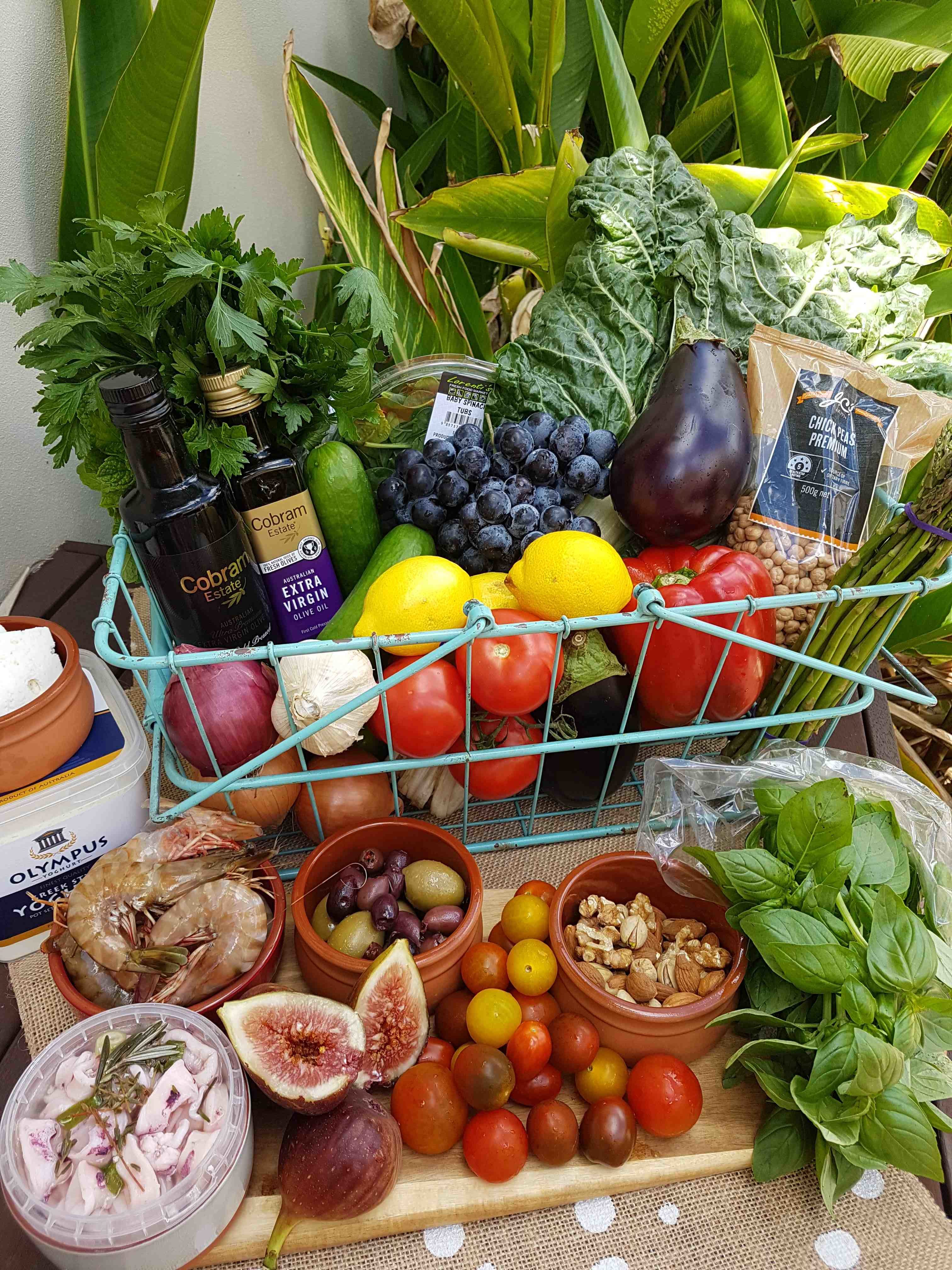
The Mediterranean Diet is fast becoming the healthiest and tastiest way to improve your health. Research is constantly supporting this way of eating as the best way to improve cholesterol control, fatty liver, diabetes and weight management. More recently it has been found to have a positive effect on mood and protection against dementia. Above all, people who are eating this way rarely get hungry as eating plentiful plant based foods and Mediterranean foods make them feel satisfied.
A way of eating that delivers good health and long life, while satisfying our hunger and helps us to reduce our risk of chronic disease sounds like a food style that we all should adopt. Follow these simple Mediterranean ways to improve your health.
Eat vegetables with every meal
The Mediterranean Diet is very plant-based with a plant to animal ratio of 4:1. This means that every meal should be heavily vegetable laden including leafy greens like spinach, silverbeet, endive, chicory and kale (at least 1 cup per day), one whole tomato per day and 2 cups other coloured vegetables. Olive oil is used in the slow cooking of these vegetables or of course drizzled over vegetables and salad at the table. Heating tomatoes (either sautéed with olive oil or slow roast in oven) will also double the antioxidant properties of the tomato. The Mediterranean diet’s onion and garlic not only enhance the flavour of a dish they also promote heart health and can stabilise blood sugar levels.
Use extra virgin olive oil as you main added healthy fat
Mediterranean’s use more fat, rather than less fat – BUT the fat that is used is the healthy monounsaturated fats found in olive oil, olives and avocado. Olive oil is rich in polyphenols and is found to also improve our good cholesterol (HDL) as well as have powerful anti-inflammatory properties. Use olive oil in cooking, sautéing, dressings and drizzle over tomatoes and sourdough grainy bread. Use up to 60mLs per day.
Nut your way each day
Eating a handful (30g) of unsalted, raw mixed nuts each day has been shown to reduce mortality rates and helps with weight management.
Include at least 2 legume meals each week
Legumes are rich sources of soluble fibre and a great source of protein. Use lentils, beans, chickpeas in soups, casseroles, stews and salads at least twice a week. Enjoy dishes like baked beans or Spanish eggs with beans, tuna pasta salad with a small tin of lentils, split pea and ham soup, lentil pot pies (with sweet potato toppers), chickpea couscous with grilled salmon or roasted chickpeas and hummus.
Include at least two fish meals a week
All fish are very low in saturated fat and oily fish such as trout, salmon or tuna are very rich in omega 3 fatty acids which are very protective for heart health. Enjoy meals of salmon steaks, baked fish with lemon, herbs and artichoke hearts, flaked salmon through salads combined with white beans or chickpeas or sardines on grainy sourdough with chopped tomato and asparagus for breakfast.
Eat meat less often
Contrary to popular thought, meat (beef, lamb, pork, chicken) is eaten quite minimally in Mediterranean countries – maximum of once or twice a week and on special family occasions. Swap meat for more meals with legumes and seafood. It is important to include plant based protein alternatives such as nuts (30g handful a day), legumes and lentils.
Eat fresh fruit every day
Enjoy up to 2 serves of fruit daily – either at snacks or as a dessert.
Eat yoghurt every day
Enjoy Greek natural yoghurt or natural yoghurt every day. Have cheese in moderation. Mediterraneans toss only a few cubes of fetta into salads and grate only a little parmesan into soups and hot dishes. Goat’s cheese is also enjoyed but in teaspoon amounts.
Choose wholegrain breads and cereals, and eat them in moderation
Bread is a staple across Mediterranean countries but it is not white, processed or lacking in fibre. It was wholemeal or containing grains and seeds and is in most cases sourdough bread that has beneficial bacteria that assists with blood sugar control and gut health. Choose breads that are sourdough, sourdough spelt, high fibre, wholemeal or wholegrain and have up to 2 slices per day.
Consume wine in moderation, and always with meals
Enjoy red wine for heart health and its powerful antioxidant properties. If you don’t drink, it is not recommended to start drinking alcohol. However, if you do drink swap to a dry red wine – enjoy a glass with your meal, and make sure you have at least two alcohol free days per week.
Sweets for special occasions only
Greek sweets are made for special family occasions and eaten in very small amounts. Little plates of sweets are offered as “bite-size” and most people only partake in one or two on the special occasions.
Enjoy some Mediterranean flavours at your table with your shopping list

